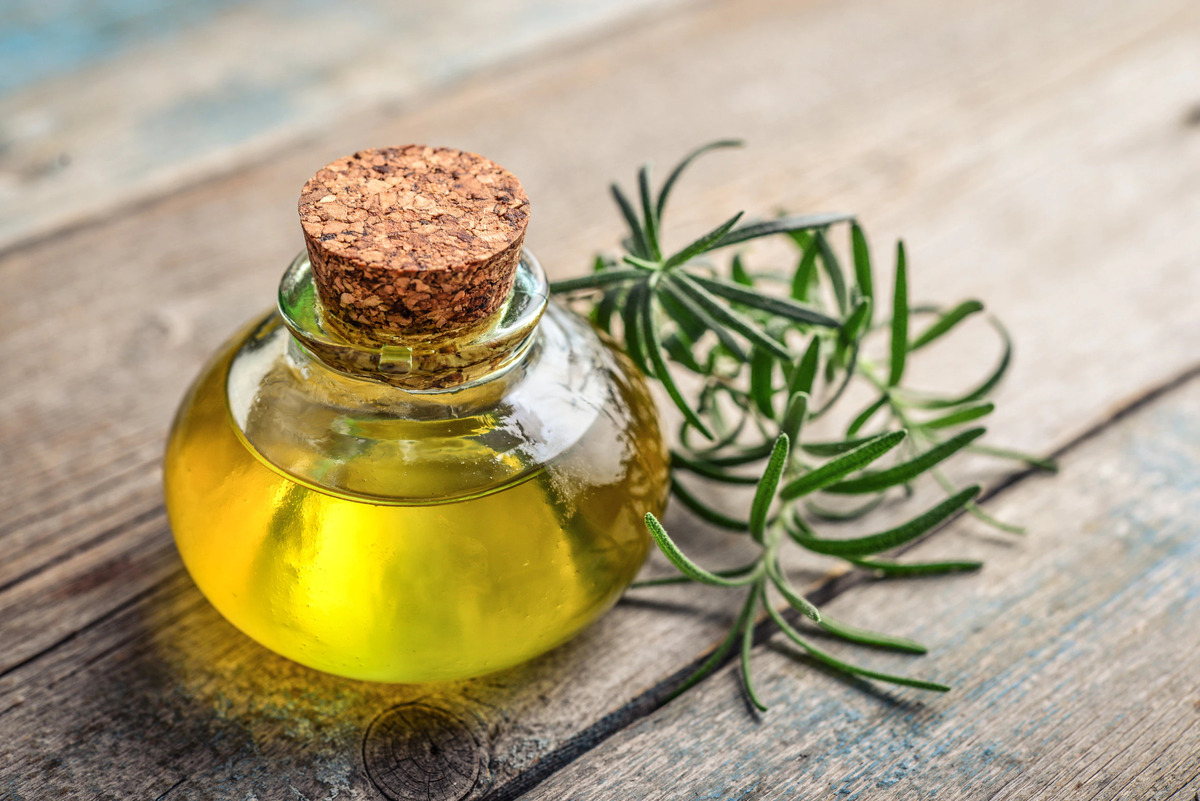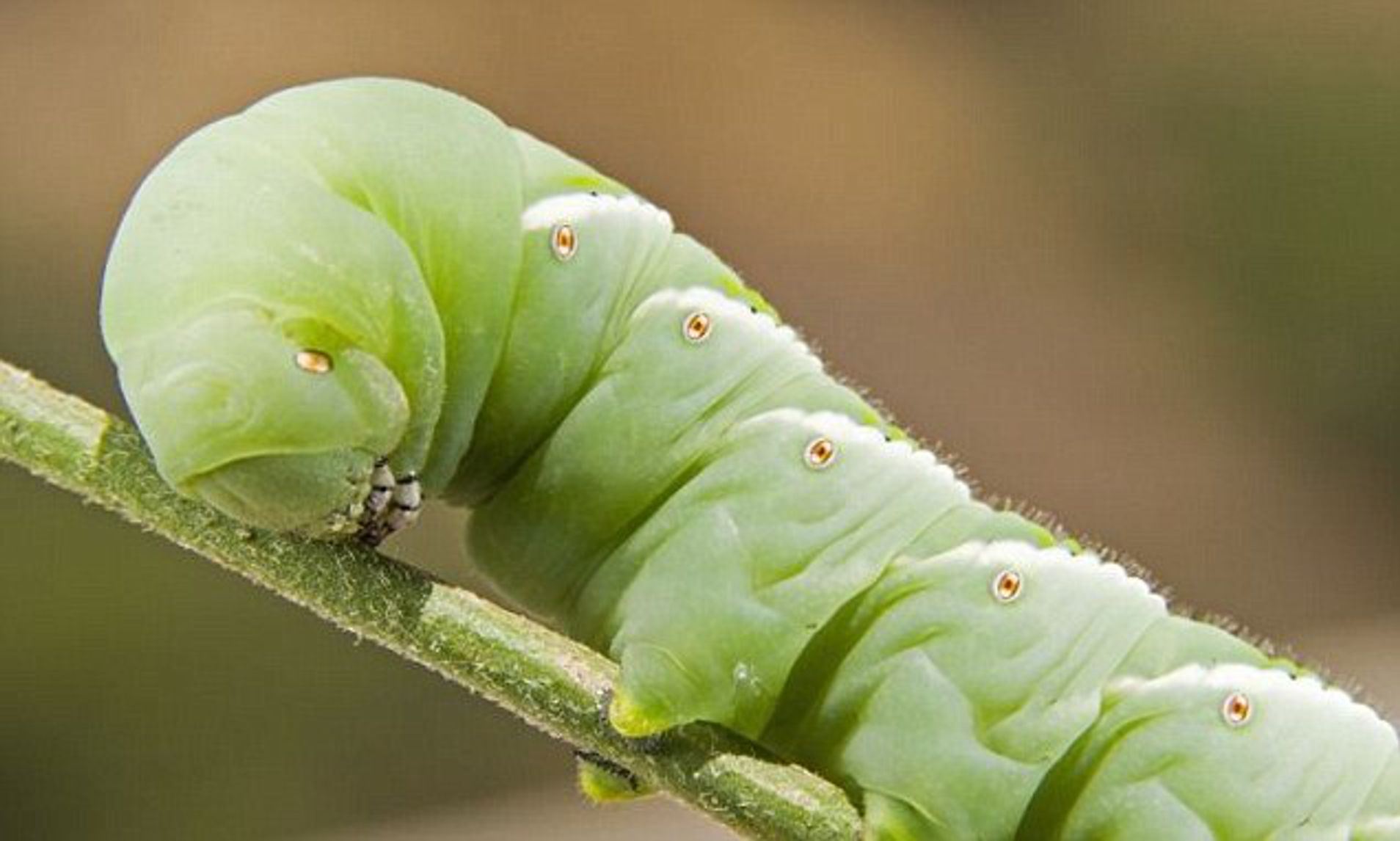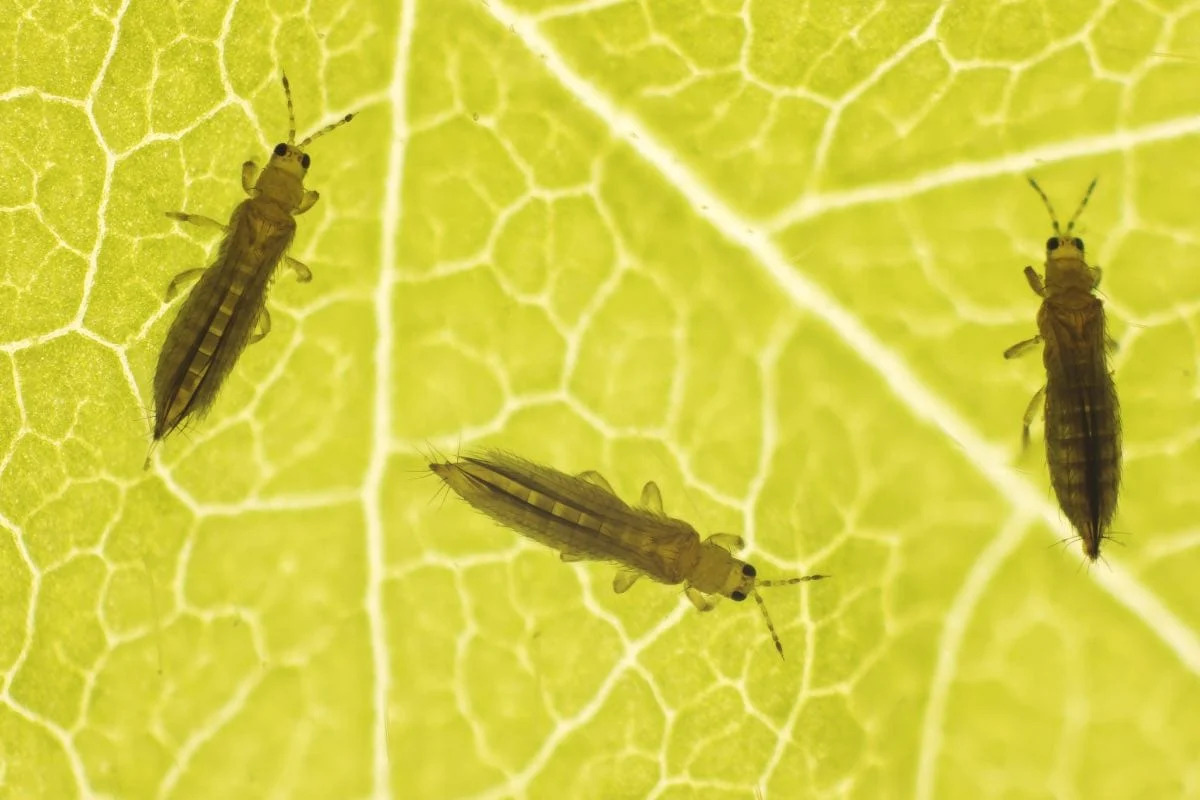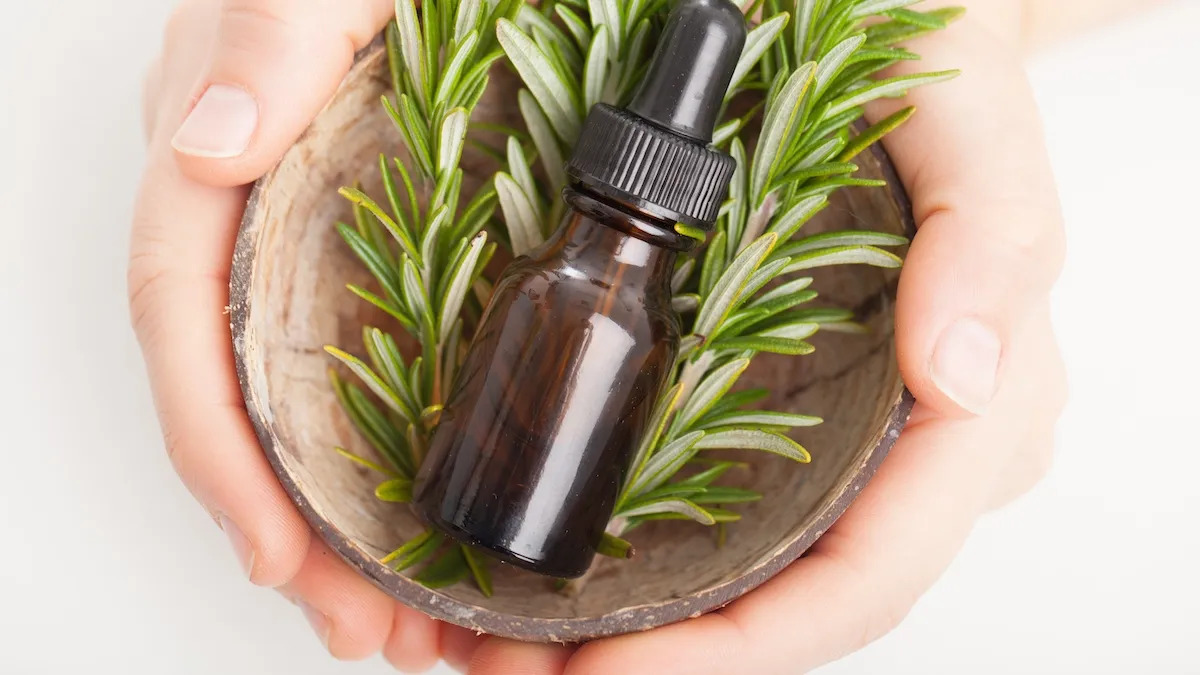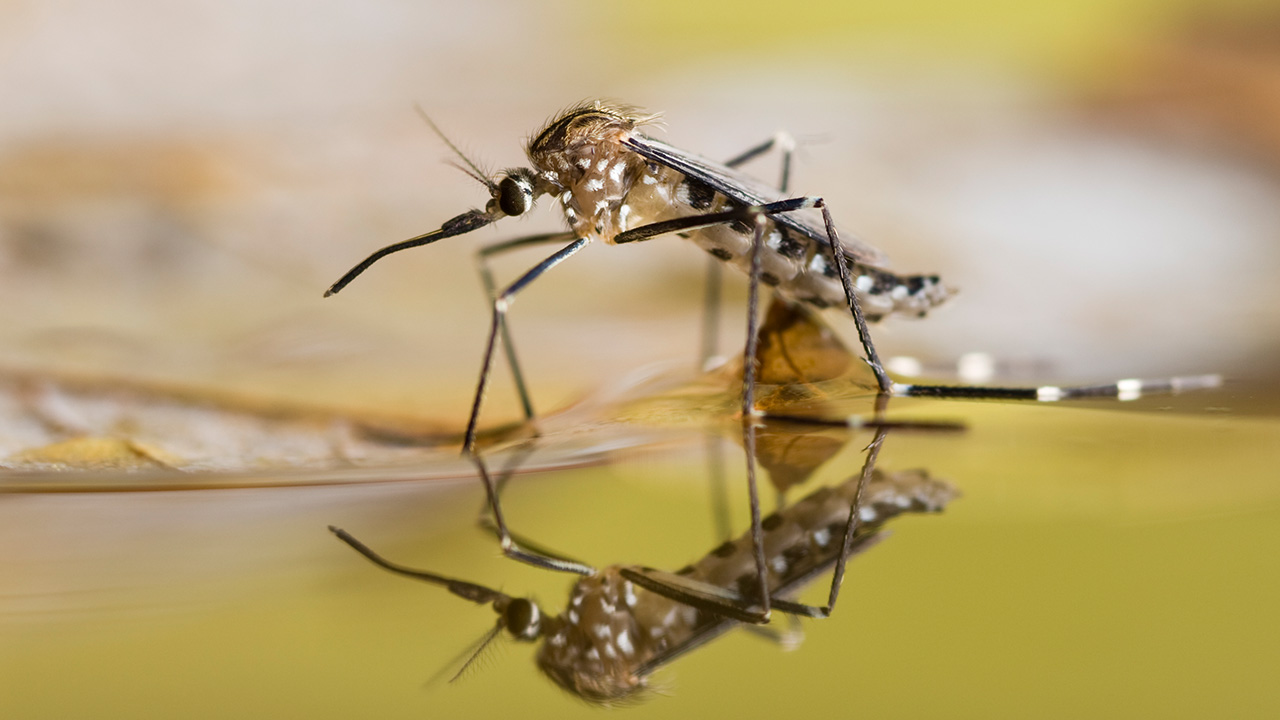Home>Gardening News and Trends>Latest News>What Insects Does Neem Oil Kill
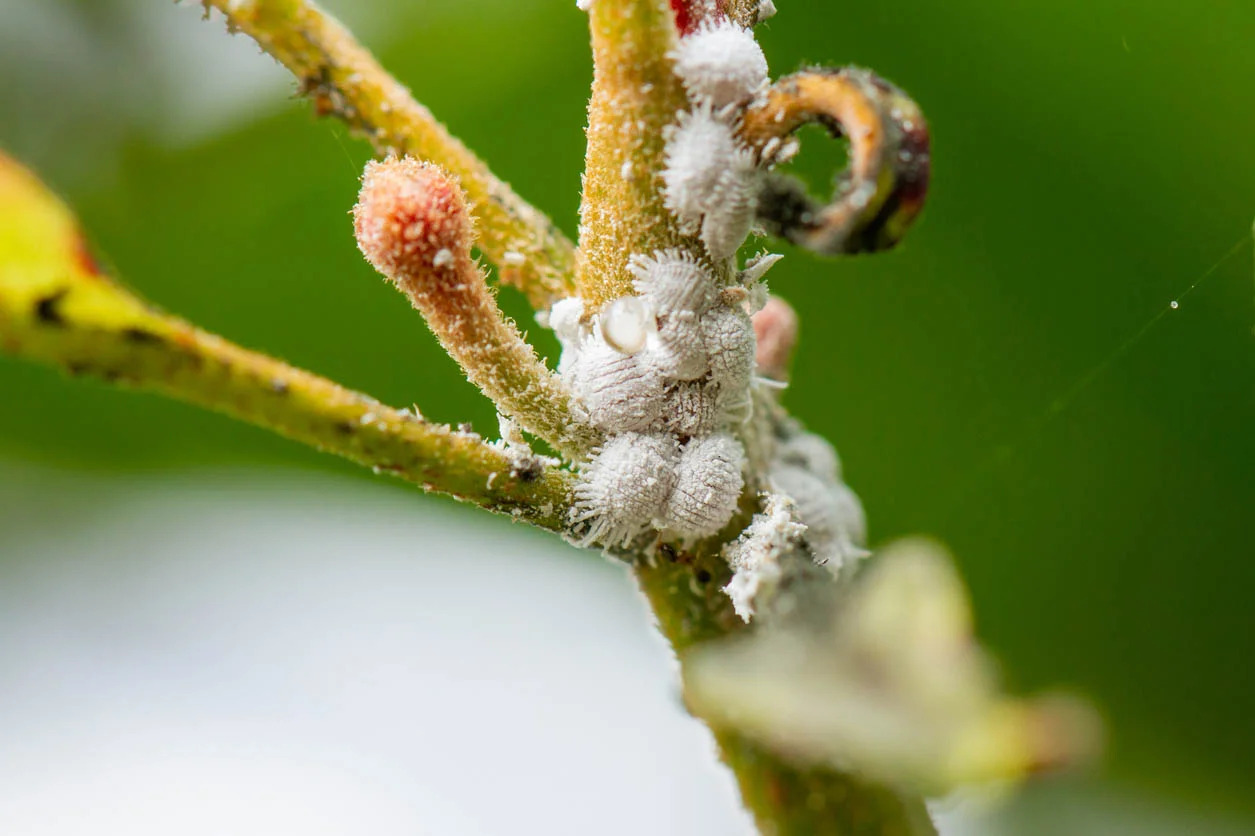

Latest News
What Insects Does Neem Oil Kill
Modified: January 22, 2024
Neem oil is a natural insecticide that effectively kills various insects. Stay updated with the latest news on its uses and benefits.
(Many of the links in this article redirect to a specific reviewed product. Your purchase of these products through affiliate links helps to generate commission for Chicagolandgardening.com, at no extra cost. Learn more)
Table of Contents
Introduction
When it comes to protecting your garden or indoor plants from pesky insects, finding an effective and safe insecticide is key. One popular option that has gained attention in recent years is neem oil. Neem oil, derived from the neem tree (Azadirachta indica), has been used for centuries in traditional medicine and is now being recognized for its insecticidal properties.
Neem oil is a naturally occurring insecticide that offers a multitude of benefits to gardeners and homeowners. It not only effectively controls a wide range of insects but also provides a safer and more eco-friendly alternative to synthetic chemical insecticides.
In this article, we will delve into the world of neem oil and explore its effectiveness as an insecticide. We will discuss the common insects that neem oil can control, how it works to kill these pests, and provide tips for its proper application. By the end of this article, you will have a comprehensive understanding of neem oil and its potential as a powerful tool for insect control.
Understanding Neem Oil
Neem oil is a vegetable oil that is extracted from the seeds of the neem tree, which is native to the Indian subcontinent. This oil has been used for centuries in traditional Indian medicine and is now gaining popularity as a natural insecticide.
Neem oil is composed of various compounds that contribute to its insecticidal properties. The most active components are azadirachtin, nimbin, and salannin. These compounds act as powerful repellents and disrupt the feeding, growth, and reproductive processes of insects.
What makes neem oil a sought-after insecticide is its ability to target a wide range of pests. It is effective against both chewing and sucking insects, making it versatile for use in gardens, agricultural crops, and even indoor plants.
Furthermore, neem oil has low toxicity to humans and animals, making it a safer option compared to synthetic chemical insecticides. This is especially beneficial for those who are concerned about the potential health risks associated with conventional insecticides.
It is important to note that not all neem oils are created equal. Look for cold-pressed neem oil, as this method of extraction retains more of the beneficial compounds compared to other extraction processes. Additionally, it is advisable to purchase neem oil from reputable sources to ensure its quality and efficacy.
Benefits of Neem Oil as an Insecticide
Neem oil offers numerous benefits as an insecticide, making it a popular choice for gardeners and homeowners alike. Let’s explore some of these benefits:
- Environmentally Friendly: One of the biggest advantages of neem oil is its low environmental impact. Unlike synthetic chemical insecticides, neem oil is derived from natural sources and does not harm beneficial insects such as bees and butterflies. It is also biodegradable, which means it breaks down quickly in the environment without leaving behind harmful residues.
- Wide Range of Pest Control: Neem oil is effective against a wide variety of pests, including aphids, spider mites, whiteflies, thrips, mealybugs, and scale insects. This makes it a versatile solution for controlling insect infestations in gardens, orchards, and even indoor plants.
- Repellent Properties: Neem oil acts as a potent repellent, deterring insects from approaching treated plants. This helps to protect plants from future infestations and reduce the risk of crop damage.
- Disrupts Insect Growth and Reproduction: The active compounds present in neem oil interfere with the growth and development of insects. They disrupt insect hormone systems, inhibiting molting, and reducing fertility. This effectively interrupts the life cycle of pests and prevents them from multiplying.
- Safe for Humans and Pets: Neem oil is considered safe for use around humans and pets when used as directed. It is less toxic compared to synthetic chemical insecticides, reducing the risk of accidental exposure and potential health hazards.
- Multiple Modes of Action: Neem oil not only repels and disrupts insect growth but also suffocates pests in its oil coating. When insects come into contact with neem oil, it clogs their breathing pores, leading to their demise.
These benefits make neem oil a valuable tool for managing insect infestations while maintaining a healthier and more sustainable garden or living environment.
Common Insects Controlled by Neem Oil
Neem oil is known for its broad spectrum of insecticidal properties, making it effective against various common garden pests. Here are some of the most common insects that can be controlled with neem oil:
- Aphids: These small, sap-sucking insects are a common pest that can damage a wide range of plants. Neem oil acts as a deterrent and disrupts the feeding habits of aphids, eventually leading to their demise.
- Spider Mites: Spider mites are tiny arachnids that feed on plant sap, causing yellowing leaves and webbing. Neem oil suffocates and kills spider mites by coating their bodies and clogging their breathing pores.
- Whiteflies: These tiny, white insects are notorious for causing damage to plant leaves by sucking sap and excreting sticky honeydew. Neem oil repels and disrupts the life cycle of whiteflies, reducing their numbers and preventing plant damage.
- Thrips: Thrips are small, slender insects that feed on leaves, flowers, and fruits. They can cause discoloration and deformities in plants. Neem oil’s repellent and growth disruption properties help control thrips populations and prevent further damage.
- Mealybugs: Mealybugs are small, soft-bodied insects that feed on plant tissues and secrete a white, waxy substance. Neem oil acts as a deterrent and disrupts the feeding and reproductive cycles of mealybugs.
- Scale Insects: These insects have a protective scale-like covering and can be difficult to control. Neem oil suffocates and disrupts the growth and development of scale insects, helping to reduce their numbers and prevent plant damage.
These are just a few examples of the many insects that can be effectively controlled with neem oil. It is important to note that while neem oil is generally effective against these pests, the severity of infestations and the specific plant species may affect its effectiveness. Regular monitoring and early intervention are essential for successful pest management.
How Neem Oil Works to Kill Insects
Neem oil exerts its insecticidal effects through multiple mechanisms, making it a versatile and effective tool for controlling pests. Here is an overview of how neem oil works to kill insects:
Repellent Effect: Neem oil has a strong repelling effect on insects, making them less likely to feed on plants treated with it. The smell and taste of neem oil act as deterrents, keeping pests away and reducing the chances of infestation.
Growth Disruption: The active compounds in neem oil, particularly azadirachtin, interfere with the growth and development of insects. Azadirachtin mimics insect hormones, leading to abnormalities in molting, growth, and reproductive processes. This disruption ultimately hinders the insect’s ability to survive and reproduce.
Feeding Inhibition: Neem oil disrupts the feeding habits of pests, reducing their ability to extract nutrients from plant tissues. This starvation effect weakens the insects and eventually leads to their demise.
Suffocation: When neem oil is sprayed directly onto insects, it forms a thin film that coats their bodies. This oil film obstructs the breathing pores (spiracles) of insects, suffocating them and causing their death.
Antifeedant: Neem oil renders plants less appetizing to insects by making the plant tissues less palatable. When insects come into contact with neem oil-treated plants, they are deterred from feeding and may seek alternative food sources.
Anti-reproductive: Neem oil can disrupt the reproductive cycle of insects by affecting their fertility and egg viability. This helps to reduce the population of pests over time and prevent future infestations.
It’s important to note that the effectiveness of neem oil as an insecticide can vary depending on factors such as the type of insect, stage of development, severity of infestation, and proper application. Regular monitoring and timely intervention are crucial for successful pest control.
Application Methods and Tips for Using Neem Oil
Proper application of neem oil is crucial to maximize its effectiveness as an insecticide. Here are some application methods and tips to consider when using neem oil:
- Dilution: Neem oil is highly concentrated and must be diluted before use. Follow the instructions on the product label for the correct dilution ratio. Typically, a 1% to 2% solution is sufficient for most applications.
- Timing: Apply neem oil in the early morning or late evening when temperatures are cooler. This helps prevent leaf burn and allows the oil to dry before the heat of the day.
- Test on a Small Area: Before applying neem oil to a large number of plants, test it on a small, inconspicuous area of the plant to check for any adverse reactions or sensitivity.
- Spray Coverage: Thoroughly spray the entire plant, including the undersides of leaves and stems, to ensure maximum coverage and contact with pests.
- Repeat Applications: For best results, it may be necessary to reapply neem oil on a weekly basis or as indicated on the product label. This helps control newly hatched insects and disrupts the life cycle of persistent pests.
- Target the Problem Area: Direct neem oil application to the areas most affected by pests, such as the underside of leaves where insects tend to hide, or the base of plants where pests may take shelter.
- Avoid Overuse: While neem oil is safe when used as directed, excessive and frequent applications can potentially harm beneficial insects. Use neem oil judiciously and only as needed.
- Protect Pollinators: To protect bees and other pollinators, avoid applying neem oil to plants when they are in bloom. Apply it in the early morning or late evening after pollinators have finished foraging.
- Storage: Store neem oil in a cool, dry place away from direct sunlight. Check the product label for specific storage instructions, as they may vary between brands.
By following these application methods and tips, you can effectively use neem oil to control pests and protect your plants from infestations.
Precautions and Limitations of Neem Oil as an Insecticide
While neem oil is generally considered safe and environmentally friendly, there are some precautions and limitations to be aware of when using it as an insecticide:
- Application Frequency: Excessive and frequent use of neem oil can potentially harm certain plants, especially those with sensitive foliage. Avoid over-application and closely monitor for any signs of leaf burn or other adverse effects.
- Plant Sensitivity: Some plant species, particularly those in the rose family (Rosaceae), such as apples, cherries, and peaches, may be more sensitive to neem oil. Test on a small area of the plant and observe for any negative reactions before applying it extensively.
- Temperature Restriction: Neem oil becomes less effective in cooler temperatures, so it is important to apply it when temperatures are consistently above 50°F (10°C). Avoid applying neem oil during periods of extreme heat, as this can potentially stress plants.
- Residual Activity: Neem oil breaks down relatively quickly in the environment, and its residual activity may be shorter compared to synthetic chemical insecticides. Repeated applications may be needed to maintain effective pest control.
- Timing and Pollinators: To protect pollinators, avoid applying neem oil to plants during blooming periods when bees and other beneficial insects are active. Apply it early in the morning or late in the evening when pollinators are less active.
- Storage and Shelf Life: Proper storage of neem oil is important to maintain its efficacy. Avoid exposing it to extreme temperatures or direct sunlight, and check the product label for specific storage instructions. Neem oil has a relatively long shelf life, but it is best to use it within one to two years of purchase.
- Effectiveness on Some Pests: While neem oil is effective against many common garden pests, it may not provide complete control for all types of insects. Some pests, such as certain species of beetles and caterpillars, may not be significantly affected by neem oil.
- Regulatory Considerations: Check with your local authorities for any specific regulations or restrictions on the use of neem oil as an insecticide in your area. Different jurisdictions may have different guidelines on application rates and permitted use.
By keeping these precautions and limitations in mind, you can harness the power of neem oil as an effective and safer alternative to synthetic chemical insecticides.
Conclusion
Neem oil is a valuable tool for gardeners and homeowners seeking an effective and environmentally-friendly insecticide. Derived from the neem tree, this oil offers multiple benefits for pest control while minimizing harm to beneficial insects and the environment.
We have explored the many advantages of neem oil as an insecticide, including its wide range of pest control, environmentally-friendly nature, and safe usage around humans and pets. Neem oil acts as a repellant, disrupts insect growth and development, inhibits feeding, suffocates pests, and has antifeedant properties. Its versatility makes it suitable for controlling common insects such as aphids, spider mites, whiteflies, thrips, mealybugs, and scale insects.
Proper application methods and tips, such as diluting neem oil, timing the application, targeting problem areas, and avoiding overuse, are important for maximizing its effectiveness. It is also crucial to consider the precautions and limitations of neem oil, such as plant sensitivity, temperature restrictions, and storage guidelines.
When used correctly, neem oil can provide effective and safe pest control, contributing to healthier and more sustainable gardens and living environments. As with any pest management approach, regular monitoring and early intervention are key to successful insect control.
Consider adding neem oil to your pest control arsenal to enjoy the benefits of an eco-friendly solution that keeps your plants thriving and free from harmful infestations.
